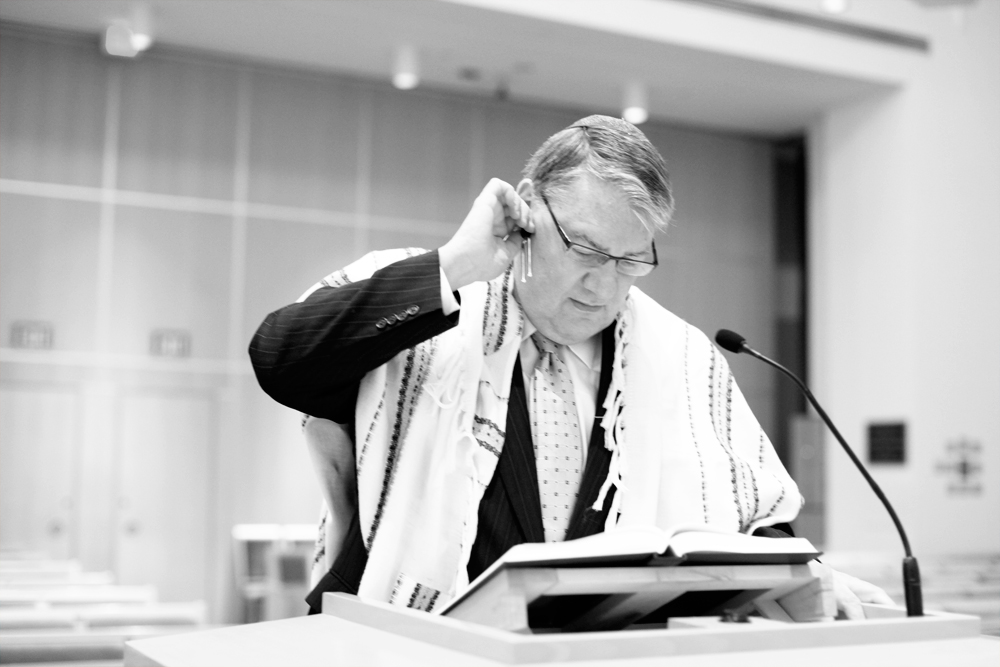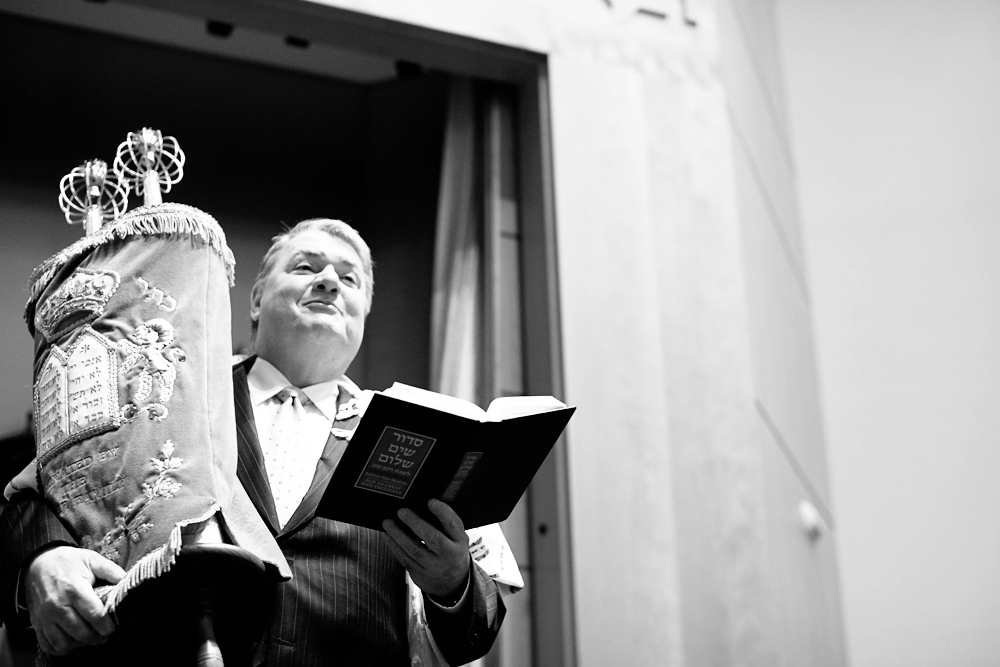Stanley
In the fall of ’65, I started classes at the Hebrew Union College School of Sacred Music. Among the upperclassmen was a giant, hulking bear of a man named Stanley Rich. In a student body filled with “characters,” Stanley stood out. Behind his chain smoking “hit man” veneer was a man of great intellect, borderline psychosis, and a gorgeous, sweet Irish tenor. Stan was a student Cantor at Temple Israel Center of White Plains,where I later served for over a quarter century. Stanley’s wife, fittingly, was a handsome, high cheek-boned, woman of Amazonian proportions. I met her at their White Plains residence, having been invited to dinner. Answering the door was “Wonder Woman” wearing a black and white, skin-tight leopard outfit.
I was nineteen years old with acne. I was smitten.
Danger radiated from Stanley wherever he went. He was the kind of guy who, if cut off by another car, would follow that car with his horn blaring until a conclusion (usually violent) was reached. Once, when attending a New York City Opera performance of Il Trovatore, the tenor missed the climactic high “C” in the famous aria, “Di Quella Pira.” Stan promptly stood up at his seat, and sang a perfect “C” causing pandemonium in the theatre and resulting in a night spent as a guest of the city.
Post graduation, I stayed in the New York area serving a congregation in Riverdale until 1972. I was then called to serve a congregation in North Miami Beach. Early in my Florida days, while looking up a number in the phone book, I saw the name Stanley Rich, listed as a clergyman. I dialed the number hoping, and sure enough it was my Stanley! He was serving a congregation in Miami called Or Olam, whose claim to fame was, “The synagogue that looked like a whale.” My own congregation, Beth Torah, also was famous, because, from an arial view, it was in the shape of a Jewish star. Unfortunately, we didn’t daven from a hovering helicopter.
Stan and I became very close. We found a piano bar called The Mouse Trap on Biscayne Boulevard where we would hang out, singing everything from Sinatra standards to Neapolitan songs, hoping to get lucky. One night, while driving home and listening to the classical station on the radio, we heard the great aria “Una furtiva lagrima” sung by the legendary tenor, Titto Schipa. The announcer butchered both the name of the aria and the name of the tenor, bringing Stanley to a frenzy. He stopped at a phone booth, and tried in vain to reach the station to set things right. So, with his anger building, Stan drove about thirty miles to the site of the station and banged on the door of the broadcast booth. As the elderly guard stood behind him pale faced and terrified, the announcer came out and received a surprisingly, calmly delivered tutorial in the finer points of Italian diction. I remember getting back in the car and feeling grateful that Stan hadn’t killed or maimed the poor guy. Having accomplished the mission, we stopped at a diner for a coffee. The proprietor, noticing a Star of David around Stanley’s neck, made one of the worst mistakes of his life, mumbling an anti-semitic curse under his breath. Stan reached over the counter, grabbed the man by the lapel, and proceeded to punch his face like a speed bag. The man said: “I’m calling the cops!” Stan replied: “Be my guest,” calmly lit a cigarette, and continued to drink his coffee as I, shaken, begged him to leave. The police came, and immediately whispered to Stan that the coffee shop owner had a history of similar incidents and that we could leave.
Stanley Rich had a soft side. Before Cantorial school, Stan had been an accountant, and for the years I lived in Florida he would prepare my tax returns, refusing to accept money. Sometimes, he displayed a child like naivete. Stan once called, telling me that he fell asleep on the pulpit during the rabbi’s sermon and had to be awakened to continue the service. He said that he was taking blood pressure medication that made him sleepy, and wanted to know if it was okay that he fell asleep! I told him it might be a better idea if he took the meds after the service. If a friend was ever in trouble, he would stop at nothing to help out, taking on that person’s difficulty as if it were his own. I remember a student, during the HUC days suffering from a lack of self confidence. Stan hooked him up with a good psychologist, and was relentless with him until he made an appointment. He was a sympathetic ear to those he loved.
To end on an historical note, Stanley was serving a congregation in Philadelphia around 1970. He had what those of us in the field would call, an “agricultural” relationship with his Rabbi. They both preferred each other to be buried in the ground. Things had deteriorated so badly that the Rabbi issued a dictum banning Stan from officiating at life cycle events. A good friend of Stanley’s passed away, and he attended the funeral as a congregant, sitting in the pews. After the service, the Rabbi went over to Stanley, apoplectic with rage, and demanded to know what he was doing attending the funeral. While yelling at Stan, a bit of spittle issued from his mouth, hitting Stanley on the face. Stan immediately hauled off, and hit him with a right cross, knocking him to the floor. In the history of Cantor/Rabbi pugilistic lore, I believe this to be the first and only one punch knock out.




